







Published
8 months agoon
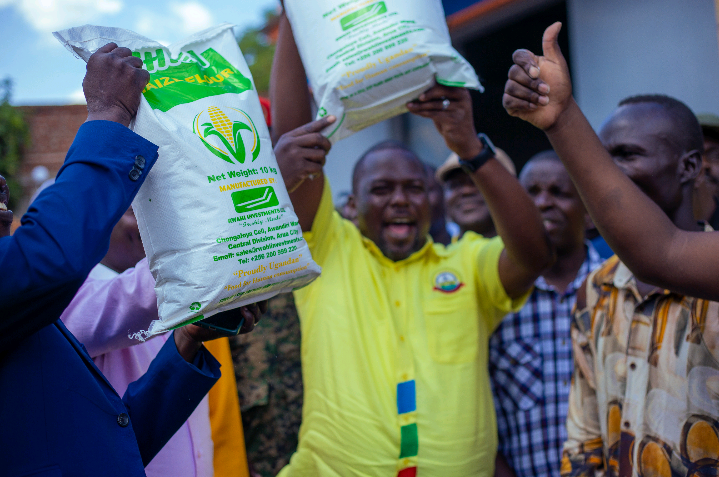
Arua, March 22, 2025 – The National Resistance Movement (NRM) Secretary General, Rt. Hon. Richard Todwong, has commended the operators of the Arua High-Level Value Addition Facility for their role in enhancing agricultural trade and economic development in the West Nile region.
The facility, located in Awindir Ward, Central Division, Arua City, was launched in 2020 by President Yoweri Museveni under the Market and Agricultural Trade Improvement Program (MATIP), a government initiative funded by the African Development Bank and implemented by the Ministry of Local Government. It aims to promote value addition and improve market access for agricultural produce, benefiting both farmers and consumers.
During his visit, Todwong praised Rwahi Investments Limited, which manages the facility under a Public-Private Partnership, for its effective operations that have significantly contributed to job creation and local economic growth. He was accompanied by Arua Central Division Member of Parliament, Hon. Atima Jackson, Aringa South MP Odria Arion and Osuga Rasul the Speaker of Arua Central Division among other local leaders.
“I am impressed by the work being done here. This facility is a testament to the NRM government’s commitment to agro-industrialization, job creation, and poverty alleviation,” Todwong stated. He emphasized the importance of strengthening agricultural value chains to improve the livelihoods of farmers and increase household incomes.
ENHANCING VALUE ADDITION ANS FARMER EMPOWERMENT
Rwahi Investments Limited, led by Managing Director Mr. Tukundane Casbert, reaffirmed its dedication to supporting the government’s agenda by ensuring value addition and improving farmers’ earnings. Casbert who was flanked by Joseph Olupot also one of the Directors of Rwahi Investments highlighted the company’s ongoing efforts to train farmers on best post-harvest handling practices to enhance grain quality and eliminate aflatoxin contamination, which has historically hindered Uganda’s grain exports.
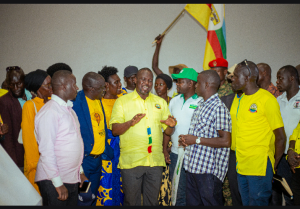
Left to right is Rwahi MD Mr Casbert Tukundane , Richard Todwong (NRM Secretary General) Joseph Olupot also Director – Rwahi & Speaker Arua Central Hon Osuga having light moments.
“The training we provide is crucial in ensuring sustainable agricultural development. By improving post-harvest handling, we can increase the quality of grains and secure better market opportunities for our farmers,” Casbert noted.
He also revealed that the facility employs 80% of its workforce from the local community, directly contributing to economic empowerment. In addition to employment, Rwahi Investments has implemented corporate social responsibility initiatives to support the local population, further solidifying its role as a key economic player in the region.
CHALLENGES AND NEED FOR GOVERNMENT SUPPORT!
Despite its success, the Arua High-Level Value Addition Facility faces significant challenges that require government intervention. A major concern is the insufficient supply of raw materials, as local farmers are yet to meet the demand for maize, cassava, millet, and sorghum. This shortfall has forced the facility to source raw materials from districts such as Masindi and Kiryandongo, raising production costs.
Rwahi Investments has expressed its commitment to mobilizing and training local farmers to increase grain production. However, Casbert emphasized that government support is essential in scaling up these efforts.
“We urge the government to support initiatives that encourage local farmers to cultivate more grains and cereals. With the right policies and funding, we can create a sustainable supply chain that benefits both farmers and the factory,” he stated.
Additionally, security concerns in neighboring Democratic Republic of Congo (DRC) and South Sudan have disrupted access to key export markets. The company called upon the government to facilitate access to alternative local markets while working to stabilize regional trade routes.
Currently, the facility processes maize flour, cassava flour, millet flour, and sorghum flour, in addition to sorting cereals such as beans and peas. It directly and indirectly supports over one million people, including farmers, brokers, agronomists, transporters, and factory workers.
POLITICAL AND ECONOMIC IMPACT ON WEST NILE
Local leaders acknowledged that the facility is a game-changer for West Nile’s economic landscape, especially with the region now connected to the national electricity grid. They urged the government to provide further incentives for private sector investment in agriculture and agro-processing.
Mancur Abdul, the LC1 Chairperson for Chonglaya Cell, where the facility is located, commended Rwahi Investments for prioritizing local employment and supporting traders with factory-priced products.
“This multibillion facility is transforming lives. When they came in, they employed people from my village, whom I personally recommended. Additionally, they sell to traders at factory price, enabling them to profit while making food more affordable for consumers,” Abdul stated.
While the facility was officially launched in 2020, it remained idle until Rwahi Investments took over its management. Their efforts have since revitalized operations, aligning with the NRM government’s objectives of value addition and agricultural transformation.
CALL FOR GOVERNMENT ACTION
With the facility now producing 30 tons of processed grains daily—enough to meet the local market demand—the next step is to scale up production and expand market access. This requires coordinated efforts from both the private sector and government agencies.
Todwong assured stakeholders that the government is committed to supporting agro-industrialization and pledged to engage relevant ministries to address the facility’s challenges.
“We must ensure that our farmers are fully integrated into the supply chain so that they directly benefit from such investments. The government will explore avenues to facilitate this process,” he said.
By bolstering support for this initiative, the government not only strengthens the agricultural sector but also secures the confidence of West Nile residents in the NRM’s leadership. A thriving agro-processing industry in Arua will serve as a model for similar projects across Uganda, reinforcing the party’s development agenda and ensuring long-term political and economic stability in the region.
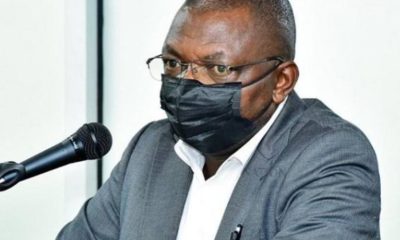

Police Officers’ Qualifications Confirmed in Commissioner Mugume Dispute
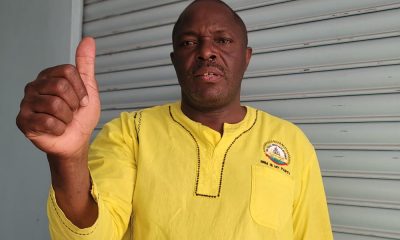

NRM Tribunal Orders EC to Declare Ruhaama County Results in Two Days


Is Jailed Police Human Resource Commissioner Mugume a Victim of a Hit Job?
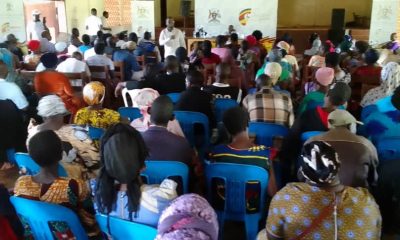

Security Agencies , Hongera Saana Uganda/Office of the President Offer Free Trackers to Boda-Boda Riders
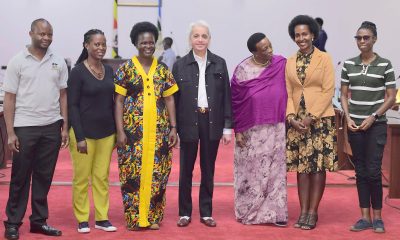

Patriotism Commissioner Hellen Seku Taps into Benny Hinn’s Blessings at State House


Dr Charles Ngabirano Nominated for Rwampara East MP Seat, Vows to Complete Key Projects
